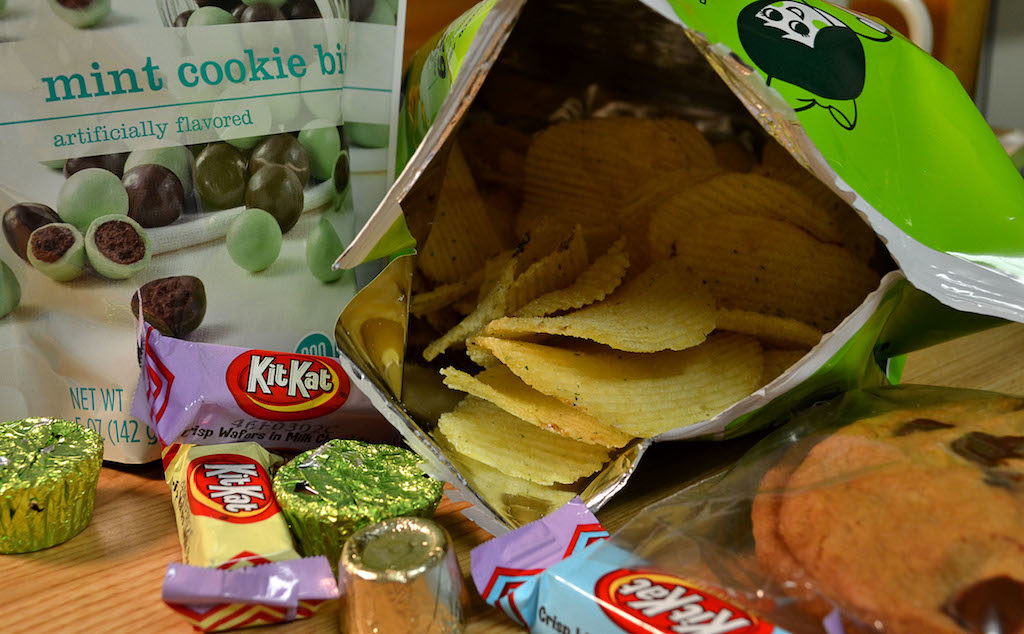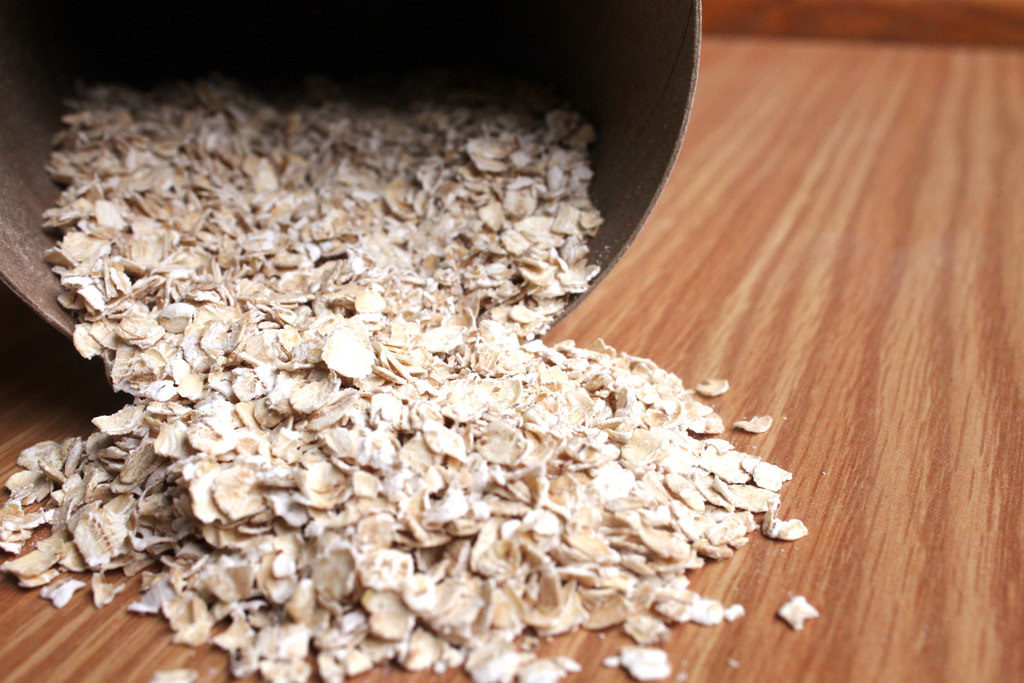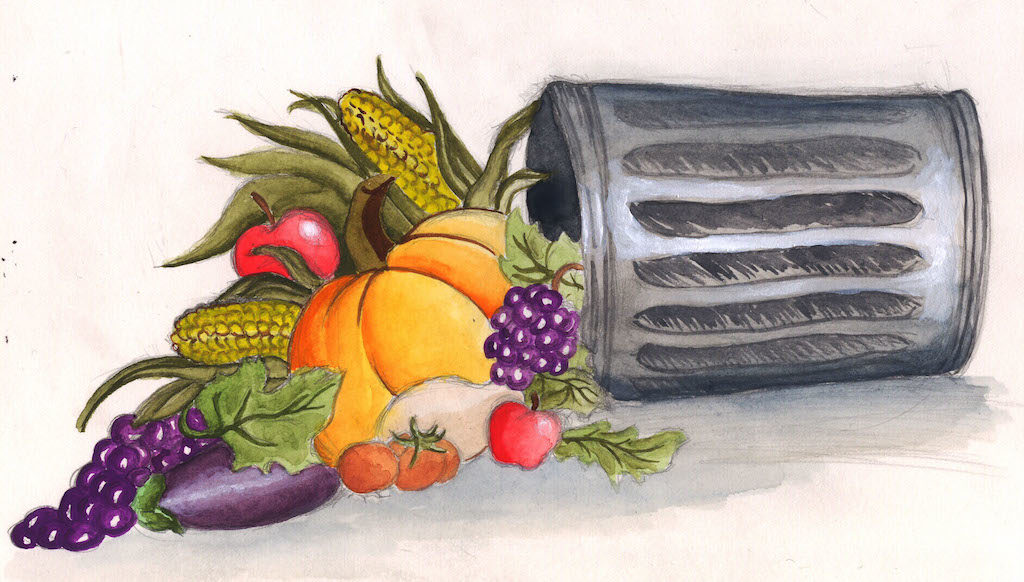Young voters often feel powerless to affect the political process, but Spoon talked to author Eve Turow about how millennials have far more influence than we know. And that influence comes from our deep love of food.
In 2015, Turow published A Taste of Generation Yum, a book that encompasses years of research about millennials, their relationship with food, and how it relates to politics. We interviewed Turow to discuss how millennials can use her findings, especially as the 2016 election approaches.
Turow distinguishes between the foodie and food movement. According to her, the foodie movement describes increased interest in “celebrity chefs, dining out, taking pictures of food, showing off with food choices, cooking at home, [and] prioritizing spending on food instead of clothing.” On the other hand, “the food movement is made up of individuals who are passionate about changing the food system.”

Photo by Emily Waples
While these movements can overlap, Turow discovered that many millennials consider themselves foodies but do not necessarily participate in the food movement. Eve believes this gap exists because millennials turn to food for comfort. We use it to achieve “community, sensory stimulation, control, and identity” in a confusing, fast-paced, and technology driven world.
Turow challenges us to step outside our comfort zone and face the aspects of food that scare us. As the foodie generation, millennials have a particular sway when it comes to food policy, and it’s time we use that sway to join the food movement and make a real difference.
Food often takes back stage in politics, but in reality, food related policies connect with and affect a number of other pressing national issues, like poverty, health care, and education. While that all sounds very complex, Turow breaks it down for us in a way that’s quick and simple to digest.
We’ve provided you the resources necessary to dig deep into those issues that really speak to you, and I encourage you to do so. But here are today’s most important food policies in a nutshell. Let’s start talking about them.
1. Universal Access to Affordable, Healthy Foods

Photo by Cait Opperman
Turow explains how Americans on food stamps are often “forced to eat highly processed foods — the only items within their price range and available in food deserts.”
According to Turow, lack of access to food puts a strain on our education system because “kids who go to school hungry or undernourished and can’t concentrate and act out.” Increased availability of healthy foods would help improve our country’s overall health and help us to spend less money on obesity-related illnesses.
2. Redirecting Government Farm Funds

GIF Courtesy of Thehappiestdonut.tumblr.com
So why are healthy foods so pricey and inaccessible to the poor? Well, every year, the government uses tax money to subsidize (financially support) farms. The products they subsidize become cheaper to produce and therefore cheaper to buy.
Eve references a study by a California Public Interest Research Group found that “between 1995 and 2010, $16.9 billion of tax money went to subsidizing… corn syrup, high-fructose corn syrup, cornstarch, and soy oils.” On the other hand, they only spent $262 million on apples, and that is the largest fruit or vegetable subsidy.
According to the study, if government spending reflected how individual Americans bought groceries, then people would have “enough to buy 19 Twinkies but less than a quarter of one Red Delicious apple apiece.”
3. Ending Marketing Junk Food to Children

Photo by Jennifer Cao
Turow describes how “you go to the grocery store and see brightly colored packages of sugary snacks placed at kid-height. Or go to the cafeteria line and receive sugar-laden chocolate milk and snag a bag of fat-filled chips.”
Turow’s examples prove the ineffectiveness of the existing policies that regulate how companies market junk food to kids. It may seem trivial, until you remember how much money we spend on obesity-related illnesses. We need to do more.
4. Banning Use of Antibiotics on Farm Animals

GIF courtesy of Tumblr.com
According to the CDC, “the extensive use of antimicrobial drugs has resulted in drug resistance that threatens to reverse the medical advances of the last seventy years.”
When farms use antibiotics on healthy animals to promote growth, they create drug-resistant superviruses. These superviruses can then infect humans. Basically, the use of antibiotics makes it more difficult to treat sicknesses in humans. That’s a major public health issue that needs to be addressed.
5. More Sustainable and Humane Farming

Photo by Marci Green
Use of antibiotics is also a form of animal abuse. Turow believes it shouldn’t be difficult for factory farms to treat animals humanely. According to her, “a great example of change comes from Perdue, but many of their ‘advanced’ techniques should be no-brainers (like chickens like sunshine and space… how revolutionary!).”
Turow also explains how farms used to rotate crops. Today, farms tend to only produce a single, high-demand crop. This practice, called monoculture farming, hurts the land and increases the needs for pesticides. As consumers, we need to start demanding other grains, such as triticale, oats, and barley, to encourage more sustainable farming.
6. Improving Wages of Food Industry Workers

Photo by Judy Holtz
Seven of the ten lowest paying jobs are in the food industry. Turow explains how this affects all kinds of people, including (but not limited to) the hard working men and women who serve you your McDonalds fries.
“I do not believe it makes sense to hear stories of an organic farmer who can’t afford to eat organic, or farm slaves, or individuals working full time at a fast-food restaurant who can’t afford to feed a family,” Turow says.
7. Food Waste Management

Illustration by Alba Tomasula y Garcia
“We throw away 40% of all food grown in the country, yet 47 million citizens are on food stamps,” Turow explains. “We’re wasting vital resources and leaving citizens hungry through a completely ineffective and mismanaged food stream.”
Turow believes we need to begin discussing how we can manage food waste at each and every level of production and consumption: “on the farm, in the home and by businesses.” When we do so, we will also solve issues of food access and sustainability.


